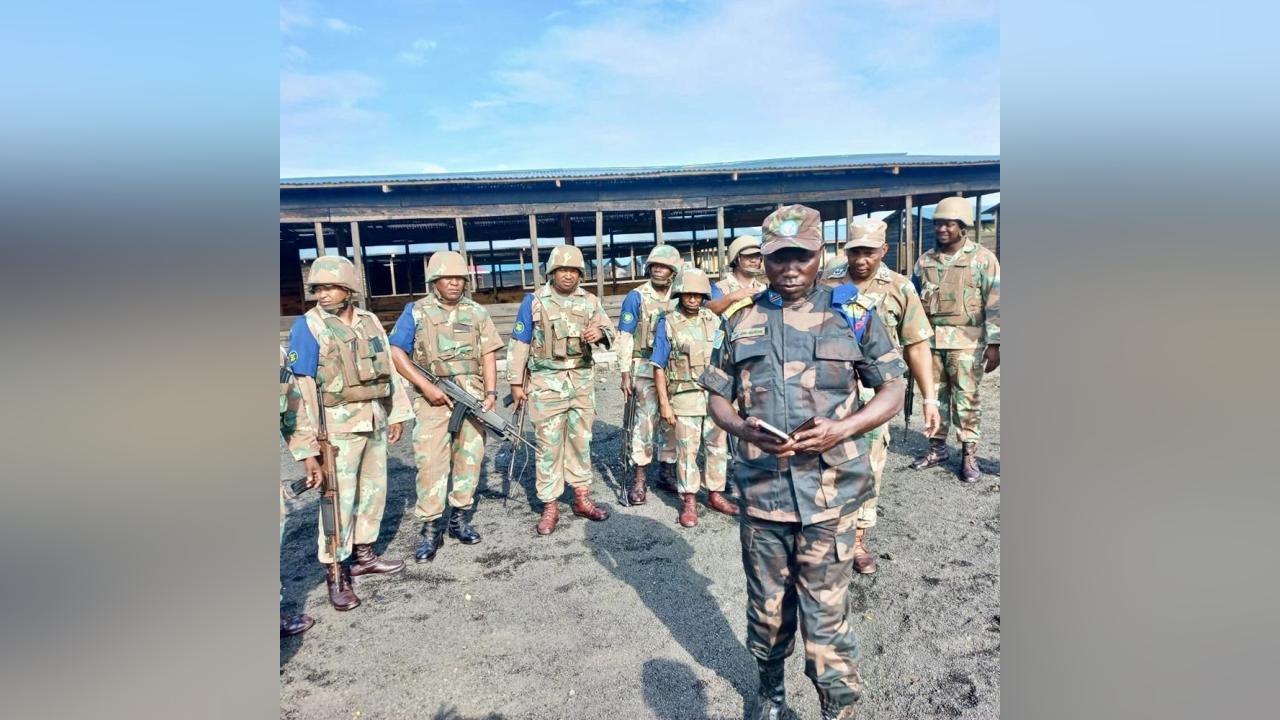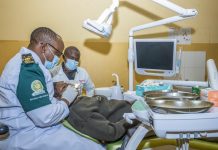Joseph Mutaboba
Africa-Press – Rwanda. There is general consensus among members of the international community, including the UN Security Council, which held two emergency meetings on January 26 and 28, at the request of the Congolese government, that there is no military solution to the crisis in eastern DR Congo.
The conflict escalated due to an obsession of the Congolese government to pursue a military solution to the issue of M23, which is in reality political. Only honest commitment by Kinshasa to engage in genuine talks with the M23, which is now a member of the Alliance Fleuve Congo (AFC), can avert further escalation of the conflict. The problem is that the Congolese government has been religiously focusing on scapegoating Rwanda, disregarding the real Congolese actors, who are now the AFC/M23.
The crisis in eastern DR Congo is fundamentally a governance issue that can only be resolved through internal political will and responsible leadership. The Congolese government must uphold its obligations to protect its citizens and implement agreements it has committed to over the last three decades. The UN Security Council and the international community should equally respect their resolve to disarm, demobilise, repatriate for reintegration the FDLR elements entertained in DR Congo (formerly Zaire) for long by the same people and institutions.
The persistent failure to address the security situation, including the presence of the FDLR, has fueled instability. Rwanda has been clear: regional peace cannot be achieved while DR Congo continues to allow the FDLR, a group responsible for the Genocide against the Tutsi, to operate freely and even integrate into state structures. These actions directly undermine regional security and past agreements, including the Luanda Roadmap and the Nairobi Declarations.
Rwanda has supported diplomatic processes and will continue to engage constructively. However, Rwanda will not tolerate repeated provocations by Congolese leaders, whether through support for the FDLR, cross-border shelling, or hostile rhetoric. The responsibility to resolve this crisis lies with Kinshasa, and Rwanda will take all necessary measures to protect its sovereignty and national security.
The capture of Goma and the opportunity it offers
The capture of Goma for the second time despite the defeat of the M23 in 2013 is a reflection of the international community’s failure in assisting DR Congo to address the root causes of the problem. The conflict has persisted because Kinshasa and the international community have disregarded the root causes of the conflict, only focusing on cosmetic fixes of symptoms of the conflict in a showbiz mode.
The resurgence of M23 and the capture of Goma, should be a wake-up call for the international community to revisit the root causes of the conflict and firmly address them, instead of supporting the intransigent stance of the Congolese government.
It would be illusionary to think that forcing M23 to leave Goma would solve the problem in a sustainable manner. The capture of Goma by the AFC/M23 should be seen as an opportunity for international community to exert pressure on Kinshasa to consider addressing the genuine grievances of persecuted communities.
The grievances of M23 are not new. They have been articulated through various peace processes, yet Kinshasa has failed to honour its commitments. The 2013 Nairobi Declarations and other agreements outlined clear steps for reintegration and political inclusion, yet these remain unfulfilled.
A sustainable solution requires genuine engagement, not short-term military crackdowns that fuel further instability. The Congolese government must: ensure the full implementation of peace agreements it has signed; address discrimination and exclusion affecting Congolese Tutsi and other communities in eastern DR Congo; and end all collaboration between the Congolese armed forces (FARDC) and the FDLR, which remains a major destabilizing force.
This is not a foreign issue; it is a Congolese problem that requires a Congolese solution. Rwanda will not be drawn into the failures of governance and leadership in Kinshasa but will act decisively if its security is threatened.
The practical and sustainable way out of the crisis
Ceasefires without accountability are temporary solutions. Regional leaders must move beyond rhetorical commitments and ensure that agreements are upheld in practice.
They should engage in a candid conversation with the Congolese government and encourage Congolese authorities to understand that it is high time they start genuine talks with the AFC/M23, if they mean to avert escalation. There is no need to reinvent the wheel. There are existing agreements and platforms to address the conflict. What is lacking and urgently needed is the political will by Kinshasa to engage in genuine talks with AFC/M23.
Meaningful resolutions should include, first, the implementation of existing agreements: the Luanda and Nairobi frameworks provide clear solutions, but they must be enforced, not merely discussed.
Second, neutral verification and monitoring: a credible regional mechanism must track compliance and expose violations by all parties, particularly FARDC-FDLR collaboration.
Third, a clear stance on external provocations: Rwanda has faced repeated acts of aggression, including shelling into its territory and open threats of regime change. Such actions must be addressed decisively within regional and international frameworks.
Rwanda is committed to diplomacy, stability, and regional cooperation. However, lasting peace requires more than just summits. It demands accountability, implementation, and an end to double standards in addressing its security concerns.
The situation in eastern DR Congo remains a consequence of unaddressed governance failures and a refusal to uphold commitments. Rwanda has consistently supported diplomatic solutions but will not compromise on its security.
Regional peace will only be achieved when Kinshasa assumes full responsibility for stabilizing its territory, ends support for armed groups like the FDLR, and ensures equal protection for all its citizens. Until that happens, cycles of instability will persist.
Rwanda remains engaged in diplomatic efforts but will act firmly against any threat to its sovereignty and regional stability. Let M23 keep a poker face and see how things unfold. DR Congo is full of surprises; it can self-destroy in a blink of an eye.
South Africa’s presence in DR Congo
South Africa’s presence in eastern DR Congo is by far neither a peacekeeping nor a peacemaking force. The existing economic interests and contracts between the two countries and/or between first families cannot fool Rwanda to believe they are there to solve Congolese problems for the Congolese government.
We have to closely watch whoever associates with the FDLR and keep an open eye on them with no sentiments but active and pragmatic monitoring since we know well who we are dealing with.
Joseph Mutaboba is Rwanda’s former Ambassador and Permanent Representative to the UN in New York. He is also a former Permanent Secretary in both the Ministry of Foreign Affairs and Internal Security, Special Envoy of the President in the Countries of the Great Lakes Region, Special Representative of the UN Secretary General and Head of the UN Integrated Peacebuilding Office in Guinea Bissau and Deputy Joint Special Representative of the UN Secretary General and the African Union President of the Commission in Darfur, Sudan.
Source: The New Times
For More News And Analysis About Rwanda Follow Africa-Press






